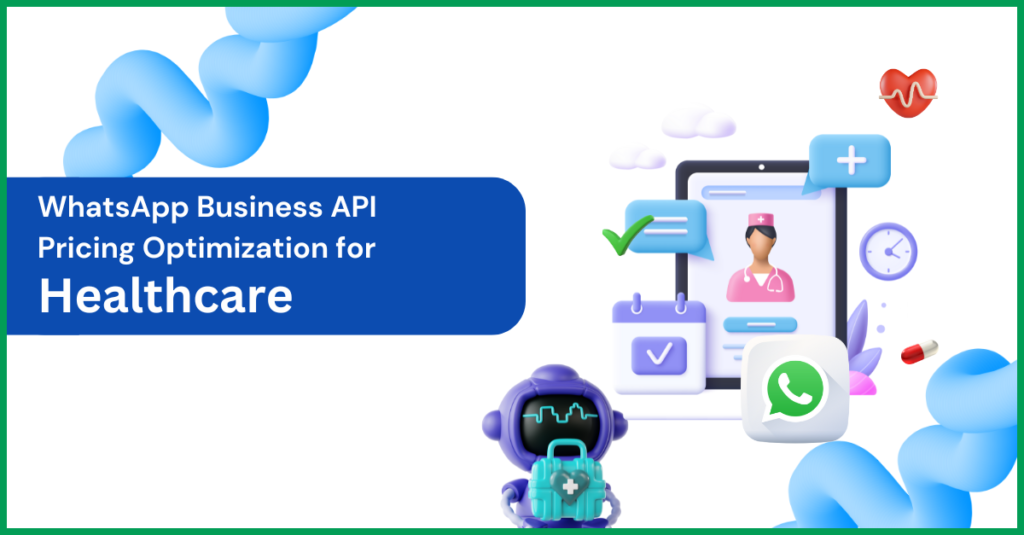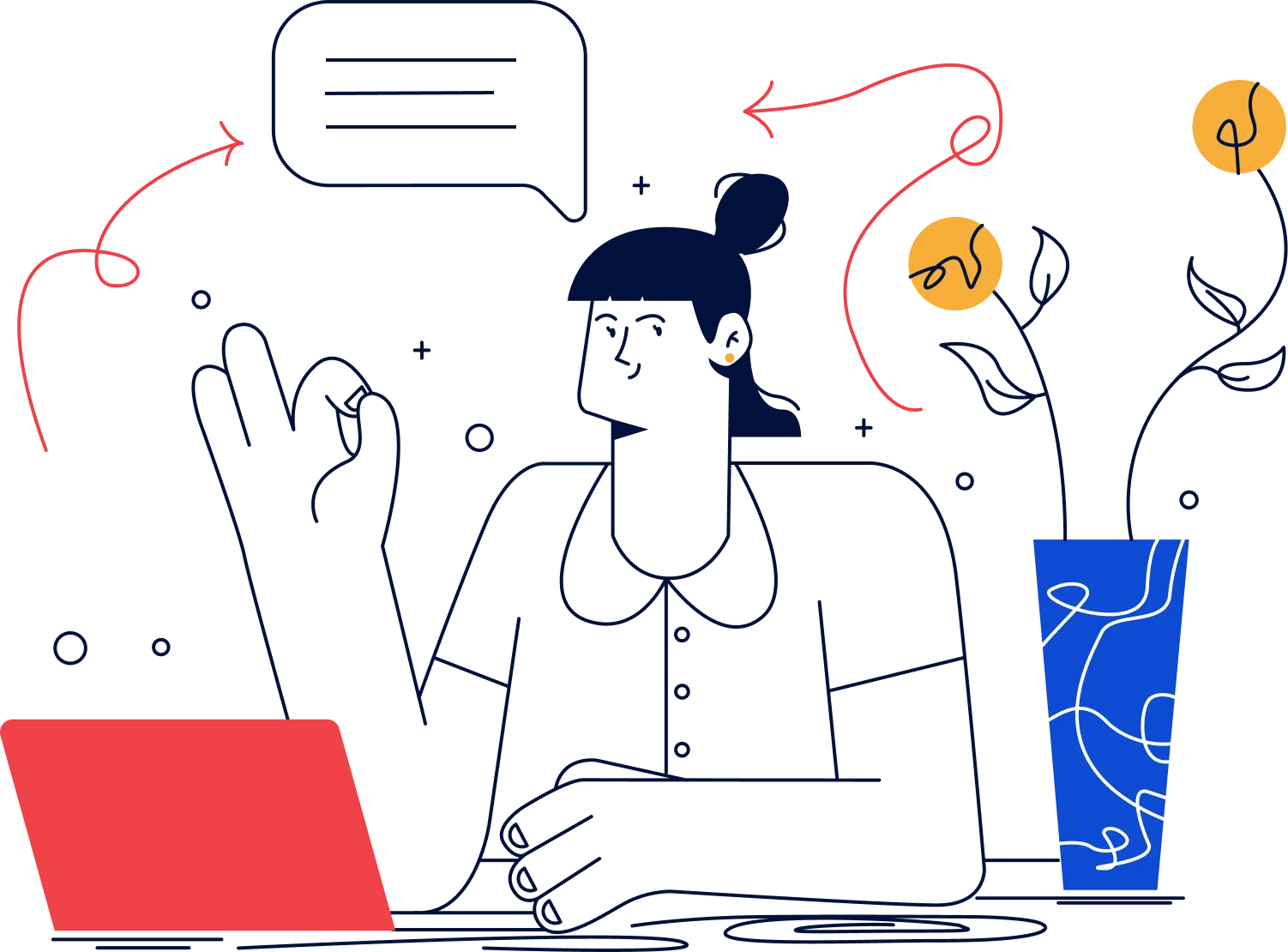WhatsApp API Integration: Revolutionizing Healthcare Communications

Healthcare industry has previously relied on phone calls, emails, and in-person appointments. Facing digital transformation. At the heart of this change is the integration of messaging platforms. And one of them, WhatsApp Business API, stands out as a powerful tool for improving communication. Improve the patient experience and improve operations This blog post explores the key benefits of WhatsApp API integration for the healthcare industry.

Why is the WhatsApp API a game changer for healthcare?
WhatsApp has billions of users worldwide. This makes it an easy communication channel for patients and healthcare providers. Integration through Business API offers several exciting benefits:
Appointment Reminders and Scheduling: Automatic appointment reminders greatly reduce no-show rates. Improve clinic efficiency and revenue Patients can schedule or cancel appointments directly through the chat interface. Without having to have a phone tag anymore Integration with scheduling systems allows for real-time updates and seamless management.
Personal Health and Educational Information: Share personal health information. educational documents and medication reminders directly to patients This proactive approach allows patients to be actively involved in their care. This leads to better health outcomes. Multimedia content such as videos and infographics It makes complex information easier to understand.
Direct Messaging with Doctors and Nurses: Facilitates direct communication between patients and healthcare providers. Make it possible to answer questions Explain about medicine and resolve concerns during appointments immediately This improves accessibility and reduces the load on telephone lines.
Post-hospital care and follow-up: Improve post-hospital care by sending automated screening messages. Reminder of medication adherence and schedule a follow-up appointment. This reduces readmission rates and ensures continuity of care.
Symptom Tracking and Monitoring: Patients can report symptoms and vital signs directly via WhatsApp, allowing for remote monitoring and timely intervention by healthcare providers. This is especially useful for chronically ill patients or those recovering from surgery.
Improve Operational Efficiency and Workflow
Automated replies and chatbots: Use chatbots to handle frequently asked questions. This frees up employees to focus on more complex tasks. Automatic replies can provide immediate information about hospital hours, appointments, and general inquiries.
Streamlined communication between teams: Reduce medical errors by facilitating seamless communication between doctors, nurses, and administrative staff. and other health professionals strengthen coordination This can greatly improve patient safety and reduce delays in care.
Efficient Appointment Management: Centralized appointment management through the WhatsApp API reduces administrative burden and eliminates scheduling issues. Automatic appointment confirmation and reminders improve efficiency.
Reduce management costs: By automating many communication tasks, WhatsApp API integration reduces the need for extensive phone support and administrative staff. This saves costs in the long run.
Improve Patient Experience and Satisfaction
24/7 Access: Helps patients access information and support 24/7. Improve your overall experience and satisfaction with the healthcare system. This improved access increases equitable access to health services. Especially for patients with limited mobility or in remote areas.
Improved patient medication adherence: Automated reminders and personalized communications improve medication adherence and adherence to treatment plans. This leads to better health outcomes.
Improved patient engagement: WhatsApp’s conversational nature promotes better patient engagement. Make them more involved in their health journey.
Multilingual Support: Supports multiple languages. Facilitates communication with diverse patient populations. and break down language barriers This increases coverage and accessibility.
Data Security and Privacy
End-to-end encryption: WhatsApp’s end-to-end encryption ensures the privacy and security of patient data. It meets HIPAA and other regulatory compliance requirements. It’s important to choose a service provider. Reputable while complying with data protection laws
Data analysis and reporting: Gain insights into patient communication patterns. Identify areas that need improvement and improve communication strategies This data-driven approach improves the quality and efficiency of services.
Operational Strategies and Considerations
Choose a trusted WhatsApp business solution provider: Choose a provider that adheres to WhatsApp’s Business API guidelines and ensures data security and privacy. Many providers offer specialized healthcare solutions.
Develop a communications strategy: Set clear communication guidelines. Create an automated messaging flow and create flowcharts for different patient situations.
Integrate with existing systems: Seamless integration with EHR (electronic health record) systems and other healthcare platforms is critical to maximize efficiency and avoid data silos…
Train your employees: Provide comprehensive training for healthcare professionals on using the WhatsApp API and its features.
Ensure compliance: Follow HIPAA, GDPR, and other regulations. Strictly concerned with the privacy and security of patient information.
Track and analyze results: Monitor key metrics like message open rates, response times, and patient satisfaction. To optimize your communication strategy.
The Bottom Line
Thus, you might have to know about the benefits of WhatsApp API integration for the healthcare industry. However, there are lots of considerations to get the best out of it. Understand the working, choosing, etc, and consider all the information before going for WhatsApp API integration for the business in the healthcare industry.






This growing trend shows just how vital WhatsApp has become as a communication tool.